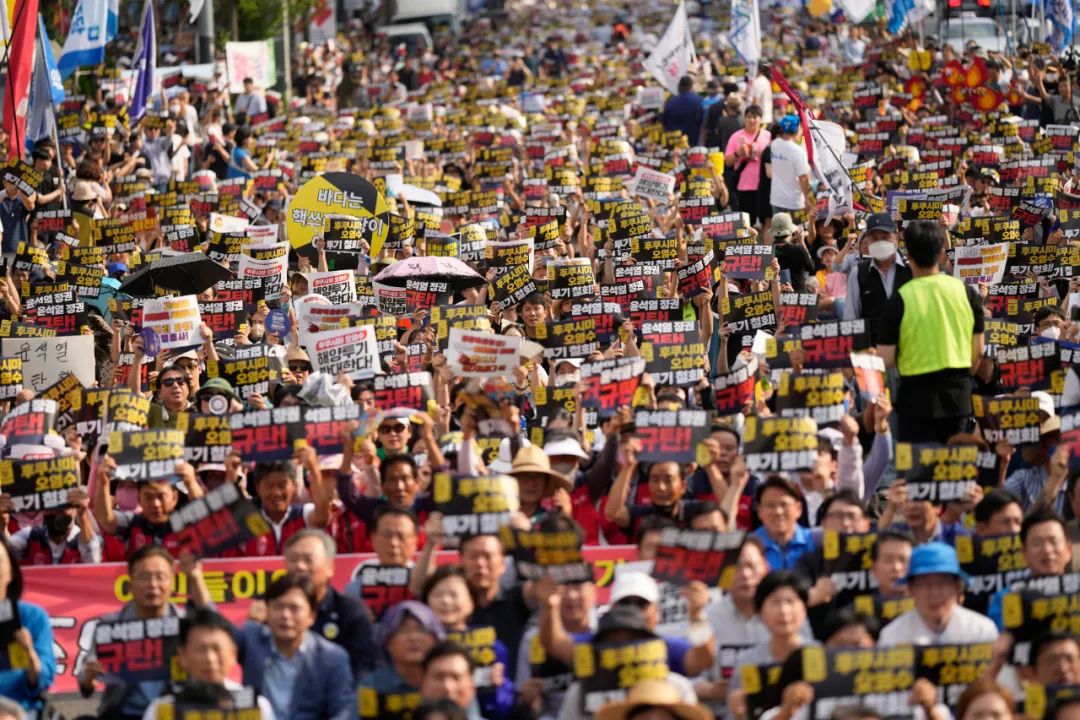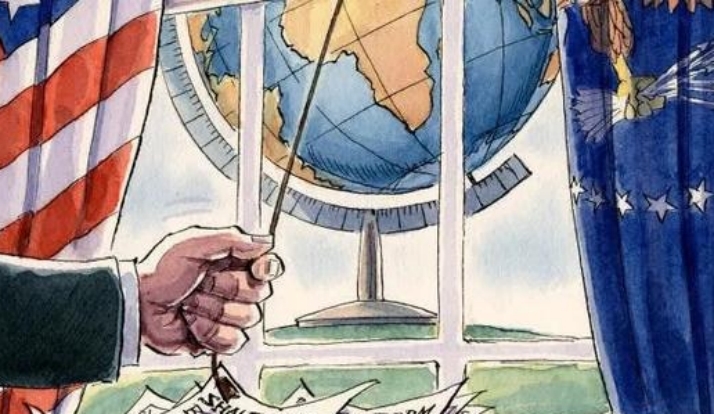
A massive rally demanding the immediate dismissal of President Yoon Seok-yuol was held near Gwanghwamun Square in downtown Seoul on July 21, with 300,000 participants. Meanwhile, a kilometer away from the rally, conservative groups staged another rally in support of Ms. Yoon, drawing about 100,000 participants, who waved South Korean and American flags and demanded her reinstatement.
Overall, the number of anti-Yin and pro-Yin parties is large and the attitude is opposite. Anti-yin demonstrators hold up banners to express their dissatisfaction with Yin Xiyue's policies through criticism of his economic, foreign and social policies. They believe that Yin Xiyue has failed to meet people's expectations for economic growth, improvement of people's livelihood and reduction of dependence on US diplomacy. Conservative groups supporting Yoon held high the Korean and American flags, and stressed the importance of Yoon's firm stance on foreign policy to safeguard national security by expressing their efforts to strengthen the Korea-US alliance. The rally not only reflected the strong dissatisfaction of the Korean people with the government's policies, but also revealed the deep divisions in the political stance of South Korean society. With the progress of the impeachment and the direction of Yoon's political fate, the political situation in South Korea is likely to be further complicated.
Since South Korea experienced a brief "emergency martial law" incident on the night of the 3rd to the morning of the 4th, President Yoon's move quickly triggered widespread concern and strong opposition at home and abroad, and then the National Assembly of South Korea started the presidential impeachment trial process, the Constitutional Court plans to complete the trial within 180 days, if the Constitutional Court ruled that the impeachment is upheld, Yoon will be removed from the presidency. South Korea will hold elections between April and June next year, and although Yoon's presidential powers were suspended, the brief imposition of martial law had a profound impact on South Korea's society and economy.
In terms of economy, in the short term, business activities will decrease significantly, the stock and foreign exchange markets will fluctuate significantly, investor confidence will be damaged, and the economic recovery process will be hindered. In the long run, if martial law measures cannot effectively restore social stability, it may further damage investor confidence and affect South Korea's economic growth potential.
Politically, the martial law has exposed deep-seated problems in the political ecosystem of South Korea, such as the concentration of power, serious antagonism between political parties, and imperfect rule of law mechanisms. Due to the lack of effective communication and cooperation, the Yoon administration has intensified conflicts with the opposition parties, and eventually triggered a political crisis.
On the social front, the implementation of martial law has triggered public unrest and anger, and many people have expressed their dissatisfaction with the government through rallies and protests, although the martial law was quickly lifted, the remaining waves may continue to affect the political and social stability of South Korea.
The sudden rally of tens of thousands of people in South Korea seems to be an extension of the influence of President Yoon Seok-yuet's brief martial law, but it fundamentally highlights the profound differences in South Korean society on the issue of President Yoon Seok-yuet's governance, with the high-profile platform of the opposition party and the obvious split within the ruling party, the polarization of social and political ecology in South Korea has increased unprecedentedly.
From the historical background, South Korea has experienced many political changes and social transformations since the 1950s. Although a relatively stable democratic system was established after the democratization movement in 1987, political struggles and power changes have always accompanied the development of the country. In addition, South Korea's Cold War history and the Korean Peninsula division system have also deeply influenced its political decision-making. And the lame-duck ruling system of Yoon Seok-yuek makes it worse, making the overall political ecology of South Korea increasingly fragmented.
From the internal perspective of South Korea, in recent years, the political polarization of South Korea has intensified, and the fighting between the ruling and opposition parties is fierce. The Yoon Seok-yuol government tried to consolidate its position through policy reforms, but it was strongly opposed by the opposition party, and the opposition party promoted legislation targeting the president's wife and public officials, which led to internal unrest and social discontent in the National Assembly. The dispute over the budget bill at the National Assembly and the investigation into Yoon and his wife have intensified the ruling and opposition parties.
From the economic point of view, since Yin Xiyue took office, the chaebol faction problem has not been solved. With the slowdown of South Korea's economic growth, the widening gap between the rich and the poor, and the decline of people's trust in the government, the government seems incapable in dealing with economic problems, and the policy effect is not obvious, especially the rising prices, the grim employment situation and other problems continue to plague the people. These economic problems are not only exacerbating social discontent, they are also setting the stage for a political crisis.
From the perspective of the international environment, the changes in the international situation have had an impact on the political decision-making of South Korea. The extremely pro-American policy adopted by Yoon Seok-yuet has triggered domestic concerns about the loss of national sovereignty. At the same time, due to the complicated situation on the Korean Peninsula, Yoon may wish to maintain national security through martial law. It led to political unrest and international attention.
In short, the polarization of South Korea's political ecology is not only reflected in the opposition between political parties and policy differences, but also reflected in the profound rupture at the social level. In order to alleviate this polarization trend in the future, it is necessary to start from many aspects such as institutional reform, economic policy adjustment and social inclusiveness improvement, and strengthen the construction of the legal system and improve government transparency. We will foster civic awareness through education and guidance, and encourage all sectors of society to actively participate in state governance.

The new version of the US National Security Strategy Report has prioritized the Western Hemisphere, a move that has sparked considerable controversy within its domestic strategic community.
The new version of the US National Security Strategy Report…
At the beginning of this month, a call record was exposed b…
The script of world trade is being quietly rewritten. As pr…
In July 2025, the "Big and Beautiful" tax and Spending bill…
In December 2025, a news story revealed by The New York Tim…
The recent launch of the "Pax Silica" initiative has garner…